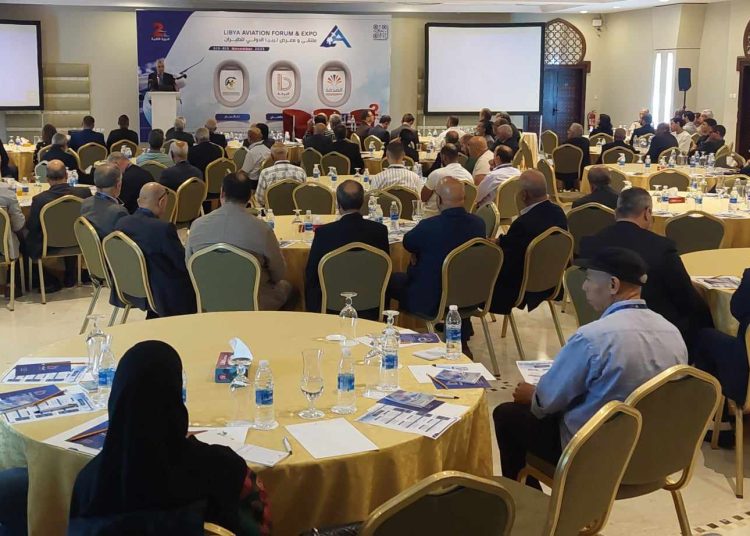On the opening day of the 2nd Libya Aviation Forum & Expo in Tripoli yesterday (6 to 8 November), it was proposed that some ‘‘outside the box’’ thinking, and measures may have to be taken in order to break the stalemate of lifting the EU flight ban on Libya. Without such accelerating measures, it was feared that the lifting of the ban may be long in coming.
It was also recognised that the decision of the EU to lift the flight ban on Libyan carriers is partly technical, partly security and partly political.
After reviewing the current Libyan aviation situation and clarifying some points and misconceptions in his presentation at the event, renowned Libyan lawyer Albudery Shariha, founding partner of Itkan Lawyers and Consultants, proposed seven main recommendations and suggestions:
- Exclude certain Libyan airports for a certain period from some of the existing laws and regulations, including the regulation that prohibits the use of private security companies at Libyan airports.
This recommendation aims at using EU approved private security companies to manage security at specific airports, e.g., Mitiga and Misrata.
- The Libyan authorities funding the cost of Libyan experts for temporary training abroad in cooperation with EU experts. This aims to raise the level of Libyan aviation personnel to all the EU and international standards needed by ICAO and other benchmarks.
- Arrangements to allow Libyan carriers to fly to and from the EU ahead of allowing EU carriers to fly to Libya. This would shift the risk balance away from EU carriers placing it on Libyan carriers. This buys time for the Libyan aviation sector in the meanwhile to continue to meet the demands of the ICAO audit.
- The Libyan state to bear part of the cost of reinsurance of carriers or offer subsidies in aviation fuel for EU carriers to make it attractive and cost effective for carriers to fly to Libya. This can be offset by the gain to the Libyan state for the resumption of EU flights to Libya.
- Form joint Libyan-European monitoring teams at selected Libyan airports for a specific period. This will help mitigate and dispel the security fears of EU states at Libyan airports.
- Conduct periodic and temporary maintenance of Libyan aircraft at European maintenance companies within the EU. Again, this would alley EU fears about Libyan aircraft maintenance standards.
- Finally, the Libyan cabinet to issue a decision to reorganise its Airports Authority into a holding company. This would remove many of the restrictions on manoeuvrability that currently exist on the Airports Authority and would give it greater flexibility as a holding company to take needed ‘‘outside the box’’ actions to help in the speedier lifting of the EU flight ban.









